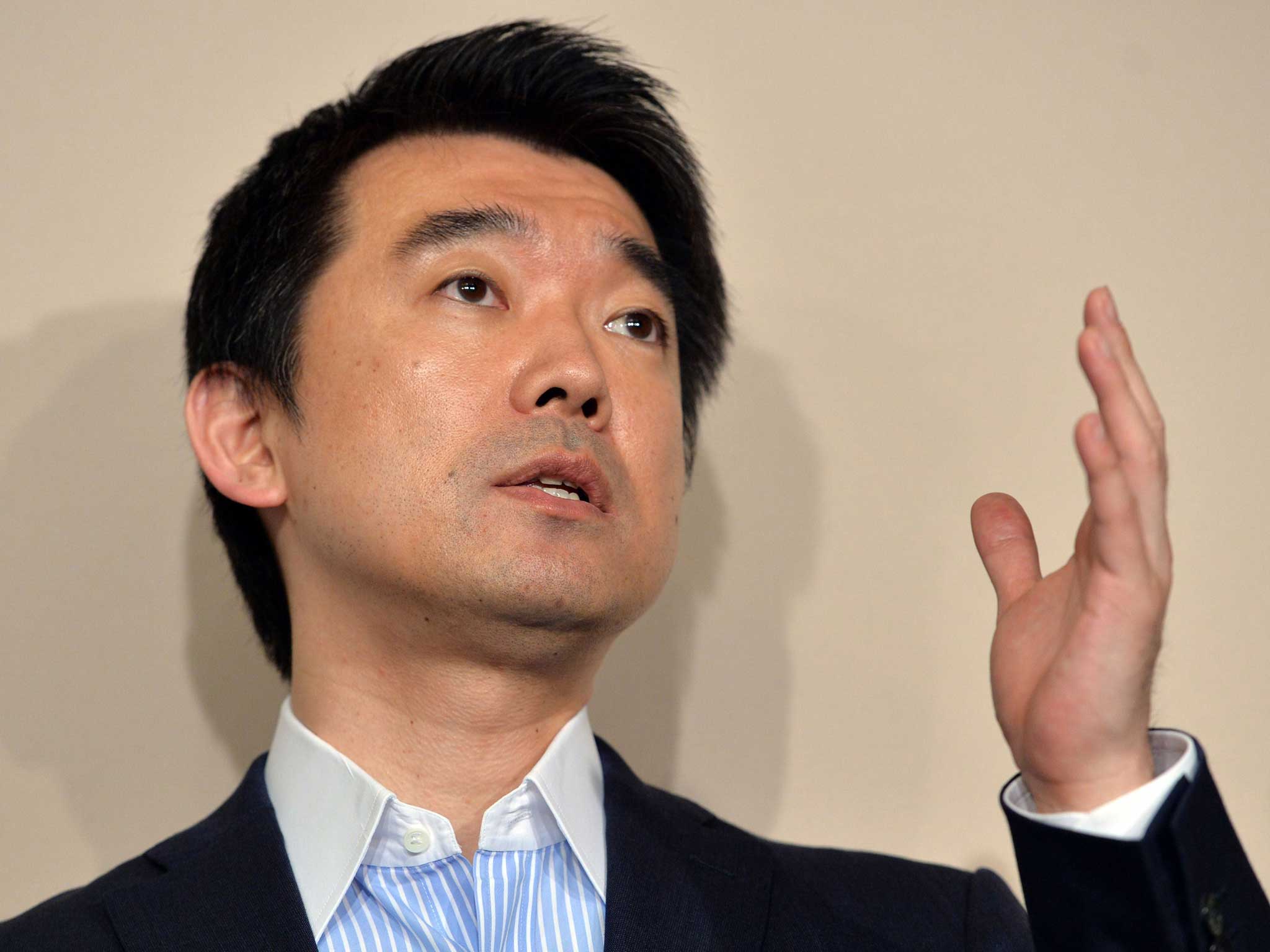Your support helps us to tell the story
From reproductive rights to climate change to Big Tech, The Independent is on the ground when the story is developing. Whether it's investigating the financials of Elon Musk's pro-Trump PAC or producing our latest documentary, 'The A Word', which shines a light on the American women fighting for reproductive rights, we know how important it is to parse out the facts from the messaging.
At such a critical moment in US history, we need reporters on the ground. Your donation allows us to keep sending journalists to speak to both sides of the story.
The Independent is trusted by Americans across the entire political spectrum. And unlike many other quality news outlets, we choose not to lock Americans out of our reporting and analysis with paywalls. We believe quality journalism should be available to everyone, paid for by those who can afford it.
Your support makes all the difference.Two Korean former sex slaves demanded the resignation of an outspoken Japanese mayor and cancelled a meeting with him today for justifying Japan's wartime practice of forcing tens of thousands of Asian women into prostitution for its troops.
Osaka Mayor Toru Hashimoto, also co-leader of a nationalist party, enraged Japanese neighbours last week by saying the use of so-called comfort women - mostly from South Korea and China - in frontline brothels before and during the Second World War was necessary to maintain military discipline and give soldiers relief.
Supporters of the two women in their 80s, Kim Bok-dong and Kil Won-ok, said there would be nothing to talk about because Mr Hashimoto has showed no remorse over his remarks. They suspected he may have wanted to use the meeting - to be broadcast live on TV - to appear friendly with them and calm public criticism.
The women, who did not appear in public, said in a statement they were heartbroken by Mr Hashimoto's "outrageous comments". They demanded that Mr Hashimoto, 43, apologise and resign as mayor of Japan's second-biggest city.
"We cannot compromise our painful past as victims and the reality that we still live today for Mayor Hashimoto's apology performance," the women said. "We don't need to be trampled on again."
Mr Hashimoto also angered the US by suggesting American troops based in southern Japan should use legal adult entertainment establishments as a way to reduce sex crimes there.
The women, regulars at a weekly protest outside the Japanese Embassy in Seoul, and their supporters originally requested a meeting with Mr Hashimoto last year, which was rejected.
Mr Hashimoto suddenly told them they could meet with him the day he made the inflammatory comments on May 13, Japanese supporters said. They said the timing seemed odd, and were sceptical about his motive.
Ms Kil, who arrived in Japan last week for a series of meetings with civil groups, including in Okinawa, has said she was saddened and enraged as he doesn't seem to regret what he said.
Both women have said in past accounts of their ordeals that they were deceived into becoming sex slaves to Japanese soldiers.
Ms Kim was recruited to work at a military uniform factory when she was 15, but ended up at a military-run brothel in Guangdong in southern China. She was dragged across Asia, from Hong Kong to Singapore and Indonesia until the end of war. She had to take an average of 15 soldiers per day during the week, and dozens over the weekend.
Historians say up to 200,000 women, mainly from the Korean Peninsula and China, were forced to provide sex for Japanese soldiers. While some other Second World War armies had military brothels, Japan is the only country accused of such widespread, organised sexual slavery.
His comments come amid concerns in China and South Korean over a series of nationalistic events and remarks coming from new Prime Minister Shinzo Abe's government, which took power after winning elections in December.
In April, several Japanese government ministers and nearly 170 MPs visited Tokyo's Yasukuni Shrine, which memorialises 2.3 million war dead, including 14 wartime leaders convicted of war crimes.
Before taking office, Mr Abe advocated revising a 1993 statement by then-Chief Cabinet Secretary Yohei Kono expressing remorse for the suffering caused to sexual slaves of Japanese troops, but his chief Cabinet secretary says there are no plans to revise the apology.
However, Abe has suggested his Cabinet does not necessarily support all of a 1995 apology by then-Prime Minister Tomiichi Murayama, which is seen as Japan's main expression of remorse for its wartime and colonial past.
Tokyo in 1995 initiated a fund of private donations as a way for Japan to pay former sex slaves without providing official compensation. But many comfort women have rejected the fund, demanding a government apology and compensation paid by the government.

Join our commenting forum
Join thought-provoking conversations, follow other Independent readers and see their replies
Comments